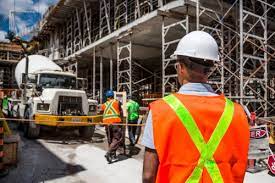Contractor mortgages differ from standard mortgages in many aspects, some of which are mentioned here:
- Criteria for evaluating affordability: The conventional criteria used to evaluate employees usually do not apply to contractors and freelancers.
- Different lenders: Several lenders in the market use the contractor’s rate as the basis for calculating their affordability rather than the contractor’s accounts. Based on this, there will be more opportunities to guarantee the contractor mortgages.
- Special needs of contractors: Contractors can apply for a wide variety of business mortgages with an a95% loan-to-value ratio.
- Different types of mortgages based on repayment mode: In a contractor mortgage, contractors can choose either a “Repayment” or an “interest only mortgage”. In “interest-only mortgage” schemes, contractors only pay back the interest each month, and the mortgage amount does not change. With a “Repayment” mortgage, contractors pay back the borrowed amount over the term and the interest.
- Different types of mortgages based on rates: Contractors can choose a fixed interest or fixed rate mortgage or a variable rate mortgage. For example, a fixed interest is set in fixed mortgages, and the payments are fixed in different years. But with a variable rate mortgage, the repayment rate changes.
Eligibility Criteria for Getting Best Contractor Mortgage Rates
Contractors can get a mortgage, provided they meet the lender’s criteria and demonstrate a steady income. It is, therefore, more difficult for contractors to secure mortgages as their work may reduce their income. On the other hand, the criteria for the best contractor mortgage rates differ between lenders and depend on the contractors’ conditions.
In general, contractors with proof of income for the past two or three years, proof of future contracts, and a large deposit can increase their chances of accepting their mortgage applications. Here are some eligibility criteria for getting a contractor mortgage:
- Deposit: Although contractors do not necessarily require a higher deposit than those in permanent employment, it makes sense to pay a larger deposit if they can afford it. The higher the contractor’s mortgage deposit, the more likely they are to get the best contractor mortgage rates. Therefore, contractors should save as much as possible before applying for a mortgage to ensure the best contractor mortgage rates.
- Affordability: Lenders look at contractors’ income to determine how much contractors can borrow. Some look at contractors’ average earnings over several years, while others look at contractors’ lowest annual earnings as an indication of their affordability. But contractors prefer lenders to consider their contract rate as the basis of their evaluation in granting mortgages. So finding these lenders will be difficult.
- Continuous work history of contractors: In general, lenders like to see the continuous work history of contractors. Therefore, contractors must maintain accurate records of previous contracts, including gaps. If contractors can demonstrate a consistent work pattern, lending to contractors is much less risky for lenders.
- Joint application: Contractors may qualify for best contractor mortgage rates if they apply jointly with someone permanently employed. Both applicants’ income is considered, but a stable income from the co-applicant may help contractors get the best contractor mortgage rates.
- Credit report check: Contractors should check their credit report before applying and take steps to correct any negative items on their credit history. This helps contractors secure the best contractor mortgage rates. Generally, contractors should be careful about any debt or credit obligations to avoid delays and keep their credit rating strong.
- Continuous work: Contractors’ income can fluctuate. But they should try to have as much continuous work as possible before applying for a mortgage and provide proof of stable income. Generally, contractors should avoid long gaps of more than 6 weeks between contracts.
- Preparing and updating documents related to contractors’ income: Contractors must have detailed checks on their income, including bank statements, status statements, tax returns, daily rates, and past and future contracts. Also, to minimize delays, contractors should ensure they have all their documents (identity documents, income documents, contracts) ready.
- Contractor friendly lenders: Few lenders understand contractor payment structures. For example, limited companies and umbrella contractors face a constant challenge in proving their financial capabilities. But there are still some lenders operating in the market who are familiar with the financial structures of contractors. This is why contractors need contractor-friendly lenders. These contractor-friendly lenders assign expert underwriters to handle contractor requests. But the thing is, contractors won’t find these lenders easily; because they deal with mortgage brokers, not the general public.
- Use a contractor mortgage broker: Contractors may have to pay a higher premium or deposit depending on their accounts and the contract length if they apply directly to the lender. However, a contractor mortgage broker allows contractors to access the best mortgage rates by accessing “high street” mortgage rates. Contractor mortgage brokers know which lenders contractors should apply to and what type of information and proof of income they need to provide to secure a mortgage.
Using a contractor mortgage broker, lenders may offer contractors more flexibility and competitive pricing. AWS Mortgage advisors provide contractors with guidance, support, and advice to secure the right mortgage. Our advisors understand how lenders calculate mortgages and how they analyze a contractor’s income. Typically, lenders look to verify a contractor’s income by reviewing their accounts or tax returns for 2-3 years. But this is a misrepresentation of contractors’ affordability.
AWS Mortgage advisors calculate the gross income of contractors based on their current day rate. In this way, the affordability of the contractors is properly proven to the lenders. As a result, it allows lenders to consider the maximum mortgage amount. Having a broker like our advisors throughout the mortgage process can help increase contractors’ chances of successfully securing a mortgage.

